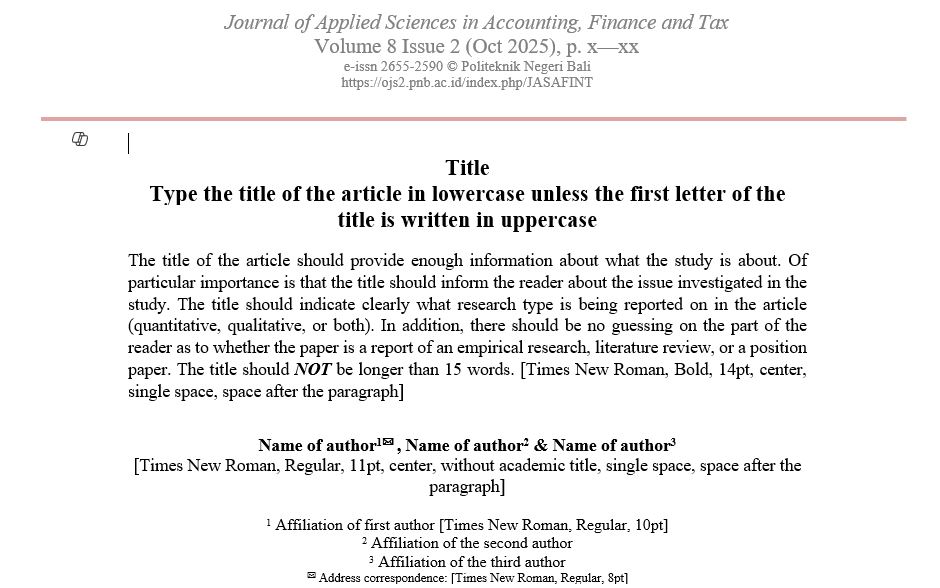Professional skepticism and audit judgment: The moderating effect of audit experience
DOI:
https://doi.org/10.31940/jasafint.v7i2.106-116Keywords:
scepticism, audit judgment, experienceAbstract
An entity's financial performance, position, and cash flows are structurally represented in financial statements, which also capture management's accountability for financial resources. To safeguard the credibility of financial information and bolster public trust, the public accounting profession is instrumental in rendering opinions on the reliability of these financial statements. To validate these financial statements and form views about the fairness of the financial information given, independent auditors conduct an audit procedure. The assessment of financial statements is greatly impacted by the audit judgment, which is an essential part of the auditing process. The impact of professional skepticism on audit judgment is investigated in this study. This study also investigates auditor experience's potential to function as a moderating variable. A total of 76 auditors from public accounting companies registered in Bali Province were the samples evaluated. Purposive sampling was used in this study to choose the sample, and auditors with at least a year of experience were required. Both linear regression and moderated regression analysis (MRA) are the analysis methods employed. The analysis's findings demonstrate that professional skepticism improves audit judgment. The association between audit judgment and professional skepticism cannot be mitigated by audit expertise. The results imply that the relationship between professional skepticism and the caliber of audit judgment is not always strengthened by auditor experience. It appears that both seasoned and inexperienced auditors are capable of exhibiting professional skepticism and rendering sound audit decisions.







